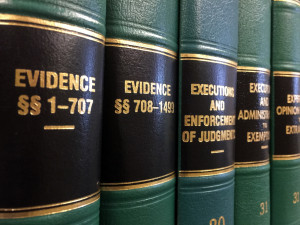What is an Ignition Interlock Device?
Ignition Interlock Device A DUI ignition interlock device or commonly called an BAIID, is a device installed in your vehicle that detects alcohol on your breath and will not start the car if alcohol is present. The interlock device is located inside the vehicle, near the driver’s seat, and is directly connected to the engine’s ignition system. It is often installed after an individual is found to be guilty of a DUI charge, and in even is some states while fighting your DUI case. For many people it is now a mandatory condition of their driving privileges. Many would prefer to drive with an ignition interlock device than to not drive at all. If you would like to find out if an ignition interlock device can save your license, we can get you answers promptly by simply filling out our free case evaluation form on this page. After reviewing your details, we can answer your concerns directly and explore potential options in your case that could result in avoiding having the Ignition Interlock Device installed. If you are facing the installation of an ignition interlock device after a conviction, or are already in the process fighting a DUI case, you should get your arrest details evaluated by us as soon as you possibly can in your case. For any person recently arrested for a DUI charge and seeking potential options or ways how to possibly avoid getting an Ignition Interlock installed on their car or vehicle, they first need to be aware of most states strict new DUI laws on the Ignition Interlock device’s role for  DUI offenders requiring an Interlock device for those convicted of a first time DUI or DWI offense.
DUI offenders requiring an Interlock device for those convicted of a first time DUI or DWI offense.
A DUI charge is expensive to deal with in itself, especially when a driver is convicted or pleads guilty to the offense. However getting an Ignition Interlock device installed, can significantly add to the already high costs involved. It is for this primary concern of most people who are currently fighting DUI and DWI arrest charges, that they know how to explore every possible option for potential ways how to avoid having an Ignition Interlock installed in the first place. Therefore the 12 primary facts to know about how the Ignition Interlock costs and requirements work are outlined below to help you better understand the importance and financial impact of any decisions you make regarding your case.
13 Facts About How Costs And Requirements Of An Ignition Interlock Works – And Possible Ways To Avoid It:
Will I Need An Interlock For A 1st DUI Offense?
Mandatory Costs Of The Interlock Device
Full Cost Of Interlock Fees Requirement
Possible Additional Costs For The Interlock
How Much To Install An Ignition Interlock
How The Ignition Interlock Program Works
How The Interlock Device Itself Works The 2016 Ignition Interlock Device
Average 2016 Interlock Costs
Interlock Test Intervals Of A Driver’s Breath
Benefits For Having An Ignition Interlock
Who Is Permitted To Drive A Car With An BIID?
How To Avoid The Ignition Interlock
Under The New Interlock Laws, Will I Need To Get An Ignition Interlock For A First DUI Offense?
In 2016 nearly every state now has new Ignition Interlock laws for first DUI or DWI offense charges, that drastically increases how much it will cost with penalties for drivers who are dealing with the consequences of an arrest for driving under the influence. Judges now have an option available to require the Ignition Interlock device to be installed on a person’s vehicle, even in first-time offense DUI or DWI case. It is also important to note that an interlock can still be ordered for installation by the court, even in arrest circumstances when a driver had a BAC under the legal limit of .08, refused to take the DUI tests, used Marijuana, took other illegal drugs, or even prescription medicine before driving. Now people who end up getting a driver’s license suspension in court, will also very likely have to install this Breathalyzer type interlock device on their car, so they could drive under the restricted requirements under what the Ignition Interlock law is in the state.
A couple of the first most important concerns people have after an arrest, is “will I lose my license for a first DUI offense, and will I have to get an Ignition Interlock installed in order to drive my car at all?” For any driver who has recently been arrested for a DUI charge, and wants the best chance to prevent and avoid having an ignition interlock device installed in their car, it is essential to have the arrest details examined online through us as soon as possible. Also, some drivers are not able to afford the high cost involved to install and then pay the monthly maintenance fees for the ignition interlock device machine. Once a skilled and local DUI lawyer familiar with the ignition interlock reviews the arrest information submitted online through us, they can then be able to discuss with you the best defense options that may help to avoid getting an interlock in the first place, when the costs and fees of a conviction can be prevented. When a charged driver can avoid a DUI or DWI offense conviction, it can save a person thousands of dollars in legal expenses such as DUI fines imposed under the law, court fees, and what the high cost of the ignition interlock requirements will be otherwise. Often what can be even more important to people when a conviction for DUI charges is avoided, is when it will prevent the extra costs that come with a guilty conviction, such as how much car insurance rates are raised, along with the severe affect on a person’s job and future opportunities. This is because when a person is required to drive with an interlock on their vehicle, in many types of careers, having the device can both embarrassing and devastating for a person’s professional life. Therefore fighting to beat the charges and all of the ignition interlock device penalties successfully, is the only real choice most people have.
What are the Mandatory Costs of the Ignition Interlock Device
If you are granted a restricted license to drive after a DUI offense, one of the first fees you will have to pay for are the costs to have your license reinstated. The next expensive fee will be the mandatory cost of having to get the Ignition Interlock Device installed in your vehicle. A person charged with a DUI must pay for all ignition interlock device costs including installation. The installation costs are typically ranging from $ 75 to $200. However in many states this fee can even be higher if the installation takes longer based on the type of vehicle. However it is important to realize that the fees for the Ignition Interlock Device don’t stop at the installation in your vehicle. There is a monthly rental fee for the device you will be charges and required to pay for the terms of your restricted driving privileges. This monthly fee averages in ranges from $50 to $100. You will also be responsible for possible maintenance costs as well as additional fees for downloading charge which is required to get data for the Ignition Interlock Device.
In some cases, there are certain circumstances in which the fees paid for a DUI conviction can be applied to the ignition interlock device installation. By having your case evaluated online with us today, we can assist you quickly in finding out if you are eligible for this option, as well as others that can be discovered once the particular details of your arrest can be examined.
The ignition interlock device requires you pass a Breathalyzer test before driving. The BAIID device will also randomly ask the driver to test their breath while driving. Many DUI cases require the driver to have an ignition interlock device and if they are found to be driving a vehicle without the device installed they will face serious penalties. It is important that every driver convicted or currently fighting DUI charges understands, that all the costs of installation, monitoring, and monthly fees of this Ignition Interlock Device are required to be paid by you. This is in addition to the court costs, fines, and lawyer costs. Please to not hesitate by taking action today and letting us evaluate your DUI case free of charge to inform you of your potential options in your specific case. Doing so as early as you can in your case, could possibly result in avoiding the installation of this BAIID device if certain actions are taken in soon enough time.
Will I be required to have to pay for the full cost of the Ignition Interlock fees?
People who have been convicted or plead guilty to DUI or DWI offense charges, and are then ordered to have an ignition interlock device installed in their vehicle, can expect to pay a total cost of about $1700 to $2000 for their first year in interlock program. These ignition interlock costs are separate from any other additional DUI fees associated with a conviction or guilty plea for the offense, such as lawyer fees, court fines, and increased insurance rates. In addition, ignition interlock drivers will likely have to pay other maintenance related costs for the interlock device with the following estimate of monthly fees:
Ignition Interlock Installation: approximately $85-100 paid to the interlock vendor.
Monthly interlock rental fees: approximately $75-90 a month, which is also paid to interlock vendor.
Monthly ignition interlock monitoring costs: approximately $35 a month fee which will be payable up front to the State.
What are some of the other possible offenses that could add more to the cost while in the DUI Ignition Interlock program?
A person who has an ignition interlock device installed, can incur more costs and fines if they violate the interlock requirements such as
Tampering with an ignition interlock device, or drive a vehicle in which the device has been tampered with.
Not have your interlock device inspected at least once every 60 days.
Ask someone else to give a breath sample so you can start the vehicle or keep driving.
Help someone who has an interlock license start their vehicle or continue driving the car by blowing into the interlock device for them.
Allowing a person who has an interlock device as a condition to drive, to operate another vehicle that is not equipped with an ignition interlock device.
The requirements for the ignition interlock device are very strict, and the cost consequences will be severe if violated while participating in the program. The ignition interlock violation cost penalties will vary for several reasons and factors, but on average can start at $600 for a passenger vehicle, up to $1,800 in a commercial vehicle for a first offense violation.
How much does it cost to have a Breathalyzer installed in your car?
After getting arrested for a DUI or DWI offense for the first time, as mentioned previously one of the first penalties people worry about is “will I have to get a car Breathalyzer installed in my car, and how much does it cost?” Therefore to summarize, the Car Breathalyzer laws or Ignition Interlock as it is known in most states, will require a person convicted of even a first offense DUI charge to have a breath test interlock device installed on any vehicle that a person drives. What some people often do not realize regarding the full long-term cost until it is after the fact and too late to prevent, is this new law also includes having an interlock installed on any vehicle that is driven for work or employment purposes. Therefore many people who get convicted of any driving under the influence related offense who drives a company car, may be in danger of losing their job. For a DUI offense penalties today in 2016, Ignition interlock devices, IID, or car Breathalyzers, are a preventive measure that most states now require to get installed throughout the country, which will be ordered at either the first Administrative License Revocation Hearing or DUI sentencing date in court. It is also important to mention, that the installation of the DUI Interlock Breathalyzer device will be required in addition to what the standard laws for penalties are of driving under the influence charges. Due to the strict rules in place for how to use the interlock device, the consequences of having a car Breathalyzer installed will put those convicted of a DUI offense at greater risk of more costs and penalties, if any of the Ignition Interlock rules are violated during the length of time it is installed on the vehicle.
How the car Breathalyzer devices work, is they are installed in a driver’s car to make sure that the person behind the wheel has not consumed any alcohol before starting the car and during the time they are driving the vehicle. When an ignition interlock gets installed on a subject’s vehicle, the driver of the car must blow into the Breathalyzer device, which is wired into the vehicle’s ignition, in order to test the driver’s blood alcohol content before the car will start. What happens if the interlock detects alcohol on a driver’s breath, the car’s Breathalyzer results are electronically logged in the device. When this occurs the car’s ignition will not start, or if it detects a failure during driving, the car will automatically turn off, while the vehicle’s alarm functions go off such as sirens, honking horn, and flashing lights. It is quite understandable that many people facing a DUI offense ordeal for the first time are confused as to how the interlock car Breathalyzer will apply to their own case. If a person would like specific answers to questions about their own arrest situation, we are here to help discuss your situation and defense options which possibly may be able to avoid getting the car Breathalyzer interlock installed altogether.
Where can I get more help about how much of a cost I will have to pay for getting a DUI Ignition Interlock installed in my car?
For more information about how the ignition interlock requirements will affect you regarding your case, please have your arrest details analyzed through us online to determine how it will apply to your own particular case and situation. Once your arrest details can be carefully reviewed online through us by skilled DUI attorneys from your area, they can then be able to help you with answers to any questions you might have. In addition to answering all of your questions about fighting your DUI case, ignition interlock and it’s cost, they can also help explain possible options to you of how to proceed with your normal daily routine such as driving to work and resuming your personal life, if you need to have an ignition interlock device installed on your car in order to drive.
How The Ignition Interlock Device Program Works
The Ignition Interlock Program is for drivers who have received a DUI charge and have been granted a limited driving suspension while participating in the Ignition Interlock program and abiding by it’s strict rules. An Ignition Interlock device is an in-car Breathalyzer taking the place of a license suspension but also prevents a driver from operating a vehicle if they have any alcohol in their system. Participants in the Interlock program are required to have the device installed on every vehicle they will be driving. This includes any vehicles driven for work, which can obviously cause significant issues in many occupations. Drivers approved for an ignition interlock as a condition for limited driving such as to got to work or school, will also be responsible for all of the installation and maintenance costs of the Ignition Interlock Device.
Before successfully completing the Ignition Interlock requirements, drivers must demonstrate a the ability to separate drinking and driving behaviors prior to completion of the program. The Ignition Interlock device is quickly becoming mandatory for a DUI conviction in most states as a condition for limited driving or a drivers license being restored with full driving privileges upon completion of all other DUI conviction requirements.
How The Ignition Interlock Device Works
A built-in data analyzer records every event associated with the use of the Ignition Interlock device.
Prior to starting the vehicle, a breath sample is required. Once a zero alcohol breath sample is provided and the vehicle is running, additional breath samples will be requested at random intervals to detect for the potential presence of any alcohol in the driver’s system while driving.
If a breath sample is not provided when required or alcohol is detected, the Ignition Interlock device will detect and record a warning. The warning will be recorded in the Interlock device event log and, where applicable, record the blood alcohol content (BAC). Then how the Ignition Interlock device works, it will activate an alarm until an acceptable breath sample is provided or disable the ability the vehicle to operate.
Typically every 30 to 60 days is the time frame in which the driver in the BIID program must make an appointment at the Ignition Interlock device installation facility to have the Interlock operating system serviced and to have the event log downloaded.
Drivers who meet the Ignition Interlock Program criteria will have the alcohol-sensing device attached to their vehicle ignition system. If the device is removed before the mandatory required time is completed, the driver’s license will be suspended until an ignition interlock device is re-installed. It is essential that a driver understands that the Ignition Interlock device must be installed for the mandatory time period before full driving privileges can be reinstated. The driver is prevented from starting or driving their vehicle if the Interlock device detects any preset level of alcohol in their body. It is also important to note of how an Ignition Interlock device works, is all the device activity is recorded and monitored. Therefore is a driver submitting to the breath test in the Interlock device fails, or any other kind of tampering with inappropriate use or handling of the ignition interlock device may have their participation in the program cancelled. Participants in the Ignition Interlock device program must adhere to a zero warning requirement while the Interlock device is installed on their vehicle. A driver could also be extended on the Ignition Interlock device program if warnings or fails are recorded by the device.
2016 Ignition Interlock Device
Due to new 2016 Ignition Interlock laws in most states, anyone who is convicted of DUI charges in 2016, must install a Breathalyzer Ignition Interlock device in their vehicle once they have their driving privileges are restored. A driver will have to blow into the device before starting their car. If interlock device detects the presence of alcohol, the car will be rendered unable to start. For drivers convicted of a first DUI offense charge, they now can be subjected to new laws which impose ignition interlocks on DUI offenders for at least one year in most states. For people who are convicted of a second DUI offense, usually they can apply to have ignition interlock device removed after three years. A person with three repeat DUI offense convictions, will likely have to install the interlock device permanently in any vehicle they drive for life. Typically if a driver who has four or more DUI offense charge convictions, they are not eligible for license reinstatement. The ignition interlock must be used by anyone who drives the DUI offender’s car, which will also include friends and family who might also drive that same vehicle at other times. Because of the strict rules that must be followed for driving with an ignition interlock in 2016, in some cases a DUI offender will just choose to avoid driving altogether until the ignition interlock condition is removed from their driver’s license.
The Ignition Interlock Device 2016 costs are still typically $1,300 a year on average.
The ignition interlock device records the number of times the driver tries to start the vehicle with alcohol in their breath sample. This data is monitored regularly; the motor vehicle must be brought in once every 60 days to allow for inspection of the device. Frequent attempts to drive with a detection of alcohol on a person’s breath, could lead to an extended driver’s license suspension. Failure to ensure the device is inspected by the required intervals, could also delay the removal of the ignition interlock. The court will consider the data stored by the ignition interlock device when determining whether the person applying for removing the ignition interlock can not pose a severe risk to the safety of others to drive without it. Charged and convicted DUI offense drivers must equip their vehicles with the interlock device at their own expense. 2016 Ignition Interlock costs of Installation and monitoring will amount to about $1,300 each year.
The 2016 Ignition Interlock will test a driver’s breath at random intervals.
Recently passed 2016 ignition interlock bills helps to combat DUI and prevent some drivers from making the mistake of drinking while driving, or from having other people blow into the device for them, since the system continually will require a breath samples at random intervals while the engine is running. A driver will have about three minutes to provide a breath sample into the ignition interlock, allowing them time to pull the car over if necessary. If a sample is not given at the small window of time required to blow into the device, or if a level of alcohol is detected, the interlock device records the event and activates flashing lights and honking horns much like a car alarm, until the vehicle is turned off. For Ignition Interlocks in 2016, it is considered an offense under the law for a person required to install an ignition interlock to operate any vehicle without one, which does include any vehicles for work as well. It is also a criminal offense to let someone drive a car without the ignition interlock device installed, if you are aware that the person driving is required to have one to do so.
If you have any questions about whether you will be required to have an ignition interlock installed to drive, or any other concerns for 2016 ignition interlock laws, please to not hesitate to contact us in the short contact box to the right of this page. We will be glad to help you promptly with any concerns about the ignition interlock, possibilities of how to avoid an ignition interlock, or any other questions you may have about fighting your DUI arrest charges for the best outcome possible.
What are some benefits for having an Ignition Interlock device installed on my vehicle?
Ignition Interlock devices, when appropriately used, prevent alcohol-impaired driving by Driving Under the Influence (DUI) offenders, resulting in increased safety for all roadway users. There are other benefits to ignition interlock devices, however, that enhance their value:
Reduction in recidivism – Research has shown that, while installed on an offender’s vehicle, Ignition Interlocks reduce recidivism among both first-time and repeat DUI offenders.
Legal driving status – Ignition Interlock devices permit offenders to retain or regain legal driving status, enabling them to maintain employment and manage familial and court-ordered responsibilities that require driving. This is a particularly relevant benefit, as many offenders without interlocks drive illegally on a suspended/disqualified license, often after drinking. The installation of an Ignition Interlock on the offender’s vehicle reduces the probability of this occurring, thereby improving public safety.
DUI/DWI Offenders and families approve – A majority of DUI and DWI offenders surveyed believe Ignition Interlock sanctions to be reasonably fair and reduce driving after drinking alcoholic beverages. Family members believed that Ignition Interlock devices provided a level of reassurance that a DUI offender was not driving while under the influence and reported a generally positive experience and impact on the DUI offender’s drinking habits.
Predictor of future repeat DUI offenses – The record of breath tests logged into an Ignition Interlock device has been found to be an excellent predictor of a future repeat DUI offense risk. DUI Offenders with higher rates of failed BAC tests have higher rates of post-ignition interlock repeat DUI offense charges, which provides valid information that could be critical regarding whether to restore an a DUI offender’s license, and any conditions under which such action may occur.
Who is permitted to drive a vehicle with an Ignition Interlock device installed on it?
Anyone can drive a vehicle installed with an Ignition Interlock device as long as they comply with the same program requirements as the DUI offender would while driving the vehicle equipped with the Ignition Interlock. However, as the DUI offender is the program participant, the DUI offender is soley responsible for any activity recorded by the Ignition Interlock system. While other people are permitted to use the vehicle, each breath sample is recorded and applied to the record of the DUI offender. This is why if other people will be operating the same vehicle with the Interlock device installed, the DUI offender must use extra precaution that all other drivers are abiding by the required rules of the Ignition Interlock device.
If family members or other people will be using the same vehicle while the ignition Interlock device is installed, it is highly encouraged for them to come for training with you to fully realize the importance of how the Ignition Interlock device works.
(Partially Referenced: What You Need To Know – The National Highway Traffic Safety Administration)
Evaluate your case online free, and get answers that may help avoid the Ignition Interlock Device penalty altogether
Getting the details of the arrest evaluated online free by our organization of professionals, has helped countless people that have been charged with a DUI and did not know where to turn to fight to avoid conviction and the installation of the Ignition Interlock Device. We understand what you are going through with the stress of the high costs of fighting a DUI case, and also know that you need specific answers about your case by professionals who are familiar with defending DUI cases and expenses surrounding the installation of an IID. We urge you to contact our firm at once if you are alleged to have been driving drunk.
Our organization has been helping people in finding solutions based on their unique arrest details, learn successful defense strategies that could be employed to help our clients get a dismissal, reduction of charges, or alternative sentencing. With our strong background in fighting DUI charges, we can provide immediate help of any DUI or DWI case in which an Ignition Interlock Device could be imposed. In many cases by getting the arrest details evaluated promptly through our online free service, this costly and harsh penalty could potentially be avoided when fast action is taken in time.
Although the implementation of ignition interlock device for a DUI/DWI in every state has supporters, the ignition interlock device themselves have been fought by those who find them unreliable and to possible malfunctioning. Opponents of ignition interlock system point out that they lack the technical sophistication of the breathalyzers used by police officers, and cannot be relied on to make the distinction between alcohol and a variety of other chemicals. There also even some claims that they can frequently malfunction to the point where the ignition interlock device can pick up and misread traces of chemicals found in the car, such as windshield wiper fluid and air fresheners. The ignition interlock device system then can log the results as a high blood alcohol content (BAC) level. A number of foods, including coffee, chocolate, and various spices have also been shown to cause a false reading on the ignition interlock device system.
Due to these potential malfunctions of the ignition interlock device system, as well as false readings attributable to the ignition interlock devices susceptibility to environmental factors such as heat, cold, and humidity, many people arrested for DUI/DWI charges find themselves unfairly served with a license suspension notice. An ignition interlock device system as a penalty requirement for a DUI/DWI arrest charge can vary by case and by the state, but can last from anywhere from 6 months to life in some serious DUI/DWI cases.
This post is informational only and is not meant to be understood as legal advice





 ove .08, that driver is legally intoxicated. If a driver is found to have a BAC of .150 or higher, they face stricter punishments, including mandatory fines, court costs, license suspension, and jail time. Law Enforcement is also able to arrest a person whom they believe to be intoxicated, even if their BAC is less than .08. This is called a “general impairment” OWI.
ove .08, that driver is legally intoxicated. If a driver is found to have a BAC of .150 or higher, they face stricter punishments, including mandatory fines, court costs, license suspension, and jail time. Law Enforcement is also able to arrest a person whom they believe to be intoxicated, even if their BAC is less than .08. This is called a “general impairment” OWI.

